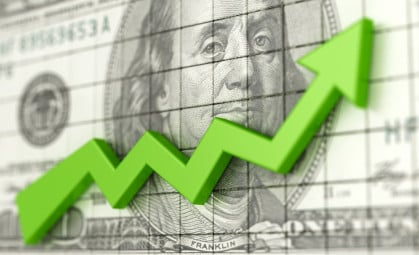
How to Sell Your NYC Co-op, Condo or Townhouse
How to calculate closing costs and capital gains taxes for NYC sellers

How much money will you profit from the sale of your New York City co-op, condo or brownstone? In addition to paying off any outstanding balance on your mortgage, remember to deduct closing costs, flip tax (if your building has one), and capital gains taxes. As a general rule, expect to pay around 8 to 10% of the sale price, about twice as much as buyers pay, and that's before capital gains tax you may owe.
Broker’s fee: Expect to pay 5 to 6 percent of the sale price to your broker (which will be split with the buyer’s broker if there is one). On a $1 million sale, that’s $50,000 to $60,000.
[November 2023 update: REBNY’s new policy on broker fees prohibits a seller’s broker from paying the buyer’s broker directly. The rule takes effect in January 2024 and makes broker fees more negotiable and means some buyers may be on the hook for paying their broker. For more, read: Sellers (and buyers!) brace for a broker fee shakeup.]
City and State Transfer taxes: Sellers pay a state and city combined transfer tax of 1.825 percent if the sale is over $500,000, or 1.4 percent if it’s under $500,000. On a $1 million sale, that’s $18,250. If your home sells for $3 million or more, the tax increases by .25 percent.
Flip taxes: To support building reserves and capital improvements, many co-op and condo buildings also levy flip taxes paid by the seller ranging anywhere from 1% to 5% of the purchase price. On a $1 million sale, that’s $10,000 - $50,000 in flip taxes.
Attorneys fees: Expect to pay around $2,500 - $3,500 for attorneys fees on a standard transaction.
Real estate capital gains taxes: The profit you make on selling your apartment or townhouse may be subject to federal capital gains tax of 0 to 20% depending on your income level. Additionally, if you earn over $200,000 per year (or $250,000 for a married couple filing jointly), you may be subject to an additional Net Investment Income Tax of 3.8%. You will also need to pay regular New York State and City income taxes on your profit. The good news: If you are selling your primary residence and have lived there for at least two of the last five years, you won’t have to pay taxes on the first $250,000 of your profit if you’re single, and $500,000 if you’re married filing jointly. You can also lower the taxable amount by deducting closing costs (including broker fees) and capital improvements costs during the time you’ve owned the property (your own renovation or amounts assessed by your co-op or condo building). Bottom line: Consult your tax adviser before assuming you can keep or re-invest all of the profit from your sale.
How much is your apartment or townhouse worth right now?
As brokers are fond of saying (at least, after the listing agreement is signed), your home is only worth what someone else is willing to pay for it.
Accordingly, the best way to estimate market value is to put your co-op, condo or townhouse on the market and see how much buyers offer for it, right? The problem with this approach is the almost universal tendency to overestimate the value of one's home...and then let it linger without appropriate, quick price cuts until it gets stale and ultimately fetches less than it would have if priced correctly.
To estimate the market value of your co-op or condo as accurately as you can before listing your place, find a recent sale in your building and line (look up your building's sales history on StreetEasy) and then adjust for variables like views, floor, condition, etc. There are lots, and lots, and lots of approaches—and mountains of guesswork--when it comes to comparing sales. It may also be helpful to attend open houses of comparable properties in the neighborhood to see how yours stacks up, so you can make the appropriate price adjustments.
Similarly, if you own a townhouse, rowhouse or brownstone, research recent sales prices in your neighborhood and especially on your block.
"Pre-marketing" your co-op, condo or brownstone can be a more accurate way to determine what your apartment is worth. In this scenario, sometimes referred to as a "whisper" or "pocket" listing, a real estate agent quietly spreads the word among their network of buyers but stops short of publicly listing your apartment on websites. If you price it too high, you can adjust it quietly, without the drop appearing on listing sites as numerical shark bait for lowball offers. New York City real estate brokerage Triplemint (a Brick Underground partner) has built an entire data-driven pre-marketing platform that provides a way to test your asking price and your marketing strategy discreetly via feedback from actual qualified buyers. There's no charge to participate and no obligation to enter a traditional listing agreement at the end of the pre-marketing period if your place hasn't sold. (Click here for more information.)





















